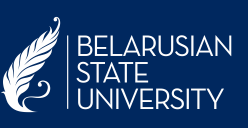
 |
Ïåäàãîãèêà èíôîðìàòèêè |
PEDAGOGY OF COMPUTER SCIENCE |
ISSN 2708-4124 |
|
EMOTIONAL INTELLIGENCE, MOTIVATION OF STUDENTS AND THE EFFECTIVENESS OF BLENDED AND DISTANCE LEARNING I.Sh. Mukhametzyanov FULL TEXT: PDF (Rus) Abstract Relevance. The current pandemic has changed the traditional education system, speeding up the introduction of blended and distance learning with the use of information and communication technologies. These forms of learning have been used before, but with the use of "paper" technologies; undoubtedly, in the case of active use of the Internet, the traditional organization and implementation of learning in these formats is changing. If previously they were used mainly at the level of higher education, among students with high educational motivation, then during the pandemic they were implemented at all levels of education. Naturally, not all students are equally motivated to study and, accordingly, their results are also different.
Key words Motivation, blended learning, distance learning, digital inequality in modern education, information and communication technologies, digital educational environment, pandemic, educational stages. Received: 07/05/2022; accepted for publication: 07/14/2022. For citation: ________________________________________ Mukhametzyanov I.Sh. Emotional intelligence, motivation of students and the effectiveness of blended and distance learning. Electronic scientific and methodological journal “Pedagogy of computer science”. 2022;1-2. Http://pcs.bsu.by/2022_1-2/4ru.pdf Content is available under license Creative Commons Attribution-NonCommercial-ShareAlike 4.0 International License. About the authors: I.Sh. Mukhametzyanov
References 1. Mirahmadizadeh, A., Ranjbar, K., Shahriarirad, R. et al. Evaluation of students' attitude and emotions towards the sudden closure of schools during the COVID-19 pandemic: a cross-sectional study. BMC Psychol 8, 134 (2020). https://doi.org/10.1186/s40359-020-00500-7. 2. Iqbal, J., Asghar, M. Z., Ashraf, M. A., & Yi, X. (2022). The Impacts of Emotional Intelligence on Students’ Study Habits in Blended Learning Environments: The Mediating Role of Cognitive Engagement during COVID-19. Behavioral sciences, 12(1), [14]. https://doi.org/10.3390/BS12010014. 3. The impact of COVID-19 on education - Insights from Education at a Glance 2020. OECD (2020), OECD Secretary-General’s Report to Ministers 2020, OECD Publishing, Paris, https://doi.org/10.1787/27007c6c-en 4. Konecki, M. Impact of Distance Learning on Motivation and Success Rate of Students During the COVID-19 Pandemic, 2020. 43rd International Convention on Information, Communication and Electronic Technology (MIPRO), 2020, pp. 813-817, doi: 10.23919/MIPRO48935.2020.9245406. 5. Robert, I.; Mukhametzyanov, I.; Kastornova, V. (2019) Pedagogical and Ergonomic Conditions for The Formation of Information Educational Space // International conference “Education Environment for the Information Age - 2019" (EEIA – 2019) / Ivanova S.V. 2019. Ì.: Institute for Strategy of Education Development of the Russian Academy of Education, p. 647–654. DOI: https://doi.org/10.15405/epsbs.2019.09.02.74. 6. Arias, J., Soto-Carballo, J.G. & Pino-Juste, M.R. Emotional intelligence and academic motivation in primary school students. Psicol. Refl. Crit. 35, 14 (2022). https://doi.org/10.1186/s41155-022-00216-0. 7. Tan, C. The impact of COVID-19 on student motivation, community of inquiry and learning performance, Asian Education and Development Studies. 2021;10(2):308-321. https://doi.org/10.1108/AEDS-05-2020-0084. 8. Barrot, J. S., Lenares, I. I., & Del Rosario, L. S. (2021). Students' online learning challenges during the pandemic and how they cope with them: The case of the Philippines. Education and information technologies, 1–18. Advance online publication. https://doi.org/10.1007/s10639-021-10589-x. 9. Robert, I., Martirosyan, L., Gerova, N., Kastornova, V., Mukhametzyanov, I., Dimova, A. (2016). Implementation of the Internet for Educational Purposes. In: Uskov, V., Howlett, R., Jain, L. (eds) Smart Education and e-Learning 2016. Smart Innovation, Systems and Technologies, vol 59. Springer, Cham. https://doi.org/10.1007/978-3-319-39690-3_51. 10. Cui S, Zhang C, Wang S, Zhang X, Wang L, Zhang L, Yuan Q, Huang C, Cheng F, Zhang K, Zhou X. Experiences and Attitudes of Elementary School Students and Their Parents Toward Online Learning in China During the COVID-19 Pandemic: Questionnaire Study. J Med Internet Res (2021);23(5): e24496. DOI: 10.2196/24496. 11. Lischer, S., Safi, N., Dickson, C. Remote learning and students’ mental health during the Covid-19 pandemic: A mixed-method enquiry. Prospects (2021). https://doi.org/10.1007/s11125-020-09530-w. 12. Melguizo-Ibanez, E., Gonzalez-Valero, G., Badicu, G., Filipa-Silva, A., Clemente, F. M., Sarmento, H., Zurita-Ortega, F., & Ubago-Jimenez, J. L. (2022). Mediterranean Diet Adherence, Body Mass Index and Emotional Intelligence in Primary Education Students-An Explanatory Model as a Function of Weekly Physical Activity. Children (Basel, Switzerland), 9(6), 872. https://doi.org/10.3390/children9060872. 13. Mukhametzyanov, I. Assessment of levels of formation of competence of students as users of information and communication technology in the field of health care / I. Mukhametzyanov, A. Dimova // Smart Innovation, Systems and Technologies. – 2016. – Vol. 59. – P. 585-593. – DOI 10.1007/978-3-319-39690-3_52. 14. Istijanto, (2021), The effects of perceived quality differences between the traditional classroom and online distance learning on student satisfaction: evidence from COVID-19 pandemic in Indonesia, Quality Assurance in Education, Vol. ahead-of-print No. ahead-of-print. https://doi.org/10.1108/QAE-08-2020-0098. 15. Ferrer, J., Ringer, A., Saville, K. et al. Students’ motivation and engagement in higher education: the importance of attitude to online learning. High Educ (2020). https://doi.org/10.1007/s10734-020-00657-5. 16. Michalski, Connor & Cowan, Melissa & Bohinsky, Jonathan & Dickerson, Ryan & Plochocki, Jeffrey. (2020). Mixed Reality Technology Influences Motivation for Learning in Medical Students. MedEdPublish. 9. doi:10.15694/mep.2020.000155.1. 17. Topping, K. J., Douglas, W., Robertson, D., & Ferguson, N. (2022). Effectiveness of online and blended learning from schools: A systematic review. Review of Education, 10, e3353. https://doi.org/10.1002/rev3.3353. 18. Ismaili, Y. Evaluation of students’ attitude toward distance learning during the pandemic (Covid-19): a case study of ELTE university, On the Horizon. 2021;29(1):17-30. https://doi.org/10.1108/OTH-09-2020-0032. 19. Yu, Z. The effects of gender, educational level, and personality on online learning outcomes during the COVID-19 pandemic. Int J Educ Technol High Educ 2021;18(14). https://doi.org/10.1186/s41239-021-00252-3. 20. Biwer, F., Wiradhany, W., oude Egbrink, M., Hospers, H., Wasenitz, S., Jansen, W., de Bruin, A. (2021) Changes and Adaptations: How University Students Self-Regulate Their Online Learning During the COVID-19 Pandemic. Front. Psychol. 12:642593. doi: 10.3389/fpsyg.2021.642593. 21. Dombrovskis, V., Guseva, S., Chapulis, S. The relationship between emotional intelligence and the level of educational motivation in adolescents. Izvestiya of Saratov University. The new series. Series: Acmeology of Education. Developmental Psychology. 2014;3(3):210–214. (In Russian) |